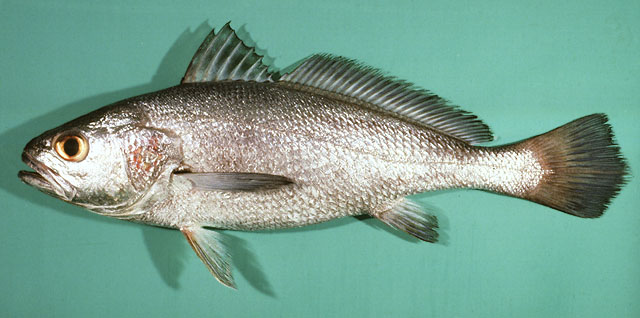| Sciaenidae (Drums or croakers) |
| 45 cm SL (male/unsexed) |
|
demersal; marine; depth range 45 - 200 m |
| Indo-West Pacific: Mozambique and Natal, South Africa (Ref. 12484), India (Ref. 4373); China, Japan, Philippines, Indonesia, and off northern Australia. |
|
Dorsal spines (total): 10-11; Dorsal soft rays (total): 27-33; Anal spines: 2-2; Anal soft rays: 7-7. A small, moderately-deep-bodied species. Swim bladder carrot-shaped, with 24 to 30 pairs of branched appendages, each with a dorsal and a ventral limb, regularly arranged so that the twiglets of the dorsal limb point backwards, and those near the tip of the ventral limb point forwards. The lateral line scales reaching the tip of the caudal fin. The linings of the mouth, gill chamber and body cavity black. |
| Found in coastal waters down to a depth of 200 m or deeper (Ref. 9772), on seaweed beds and gravel (Ref. 11230). Important food fish. |
|
Least Concern (LC); Date assessed: 26 September 2018 Ref. (130435)
|
| harmless |
Source and more info: www.fishbase.org. For personal, classroom, and other internal use only. Not for publication.
